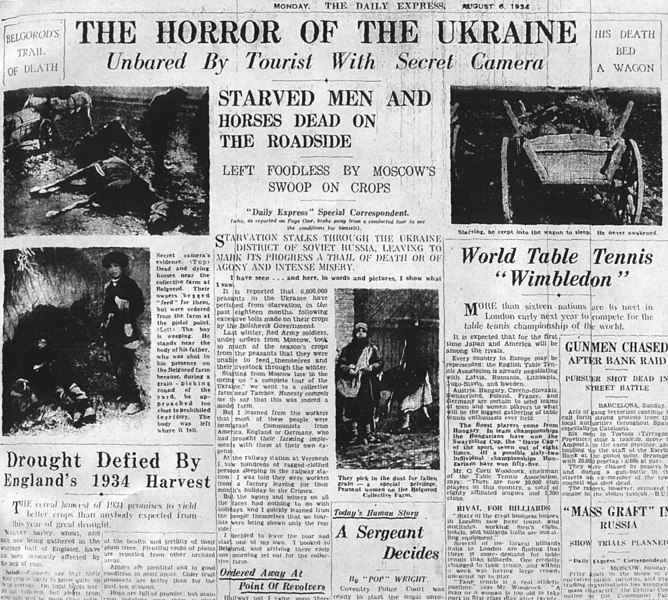
The Swiss House of Representatives has officially recognized the "Holodomor"—a famine orchestrated by Stalin's regime that led to the deaths of around four million
Ukrainians, two million Kazakhs, and several hundred thousand Russians—as genocide.
The famine, intended to crush the resistance of farmers opposing forced collectivization, is widely accepted by independent researchers. Christine Badertscher of the Green Party, speaking on behalf of the committee, stated, "With this recognition, we ensure that the victims are not forgotten," emphasizing the symbolic importance of this decision.
However, the Swiss People's Party opposed the genocide recognition. Party representative Monika Rüegger argued that determining genocide is the responsibility of international tribunals, not individual nations. She added that Switzerland should remain neutral, stating, "It is not Switzerland's role to decide whether genocide has occurred."
The push to recognize the Holodomor as genocide gained momentum following Russia’s invasion of Ukraine in 2022. Ukraine officially declared the Holodomor a genocide in 2006, and several other nations, including Germany, France, and Italy, have followed suit in recent years.
Famine as a Weapon
The Holodomor occurred after two consecutive poor harvests in 1931 and 1932. Despite widespread hunger in rural areas, Soviet authorities increased grain requisitions from Ukraine, exporting much of it to the global market for foreign currency. Many historians believe that in late 1932, Joseph Stalin deliberately used the famine as a weapon against Ukraine, making the Holodomor a tragic and deeply painful chapter in the country’s history. Photo by New York Evening Post, Daily Express Journals, Wikimedia commons.



































